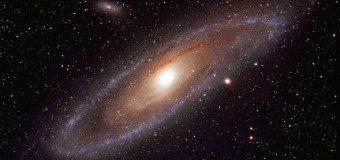
An interesting new book has just come out called ‘Why Science Does Not Disprove God’. The author is Amir Azcel and in an article in The Wall Street Journal a few days ago he describes how many scientists initially resisted the Big Bang Theory, especially those predisposed towards atheism.
As Azcel says, “it was a Catholic priest who first came up with the big-bang idea in 1927. The Belgian priest Georges Lemaitre, who was also an astronomer and physicist, theoretically deduced the expansion of the universe and proposed that it was launched from a ‘primeval atom’—the process later known as the big bang.”
This fact alone made atheists suspicious of the theory. It looked far too much like a moment of creation.
Lemaitre, says Azcel, “believed in the story of Genesis, which outlines the birth of the universe, and he searched for a way to prove it scientifically.”
Azcel refers to certain theories that the Big Bang came from nothing. “In particular, physicist Lawrence M. Krauss’s 2012 book ‘A Universe from Nothing’ insists that the big bang occurred within a complete emptiness, and thus there is no need for a ‘God.’”
However, Azcel points out that the Big Bang cannot have occurred in ‘nothing’. He says, “It had to be spawned in some kind of pre-existent medium, known by physicists as ‘quantum foam,’ though we don’t know exactly what it is.”
He concludes that the Big Bang theory is fully compatible with the belief that the universe has a creator.
It is notable, however, that some scientists, as a result of their prior commitment to atheism, resisted the Big Bang theory. This only goes to show that atheism can be an act of faith and that act of faith can sometimes come into conflict with science.
PS This four minute video explaining the rationality of belief in God and why atheism is an act of faith is worth a look.















